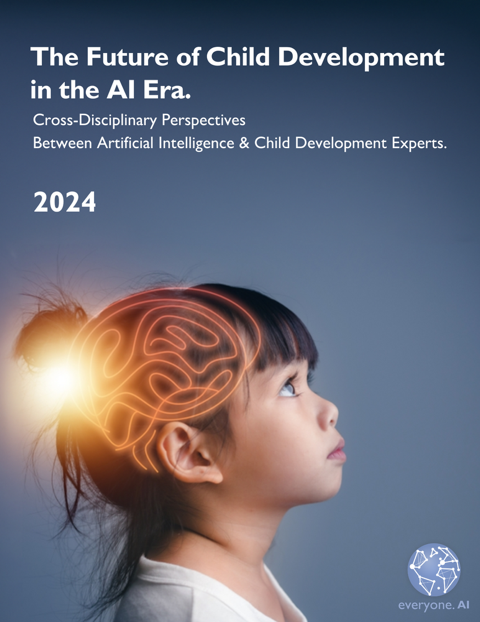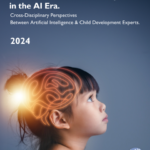Cross-disciplinary perspectives between AI & child development experts

The rapid integration of Artificial Intelligence (AI) into children’s environments necessitates careful examination, especially given the environment’s critical role in shaping cognition, socio-emotional skills, and behaviours during the first 25 years of brain development. AI’s growing presence in educational and leisure activities significantly alters children’s experiences, presenting both challenges and opportunities for their developmental paths.
Expert Insights and Literature Review
This analysis draws from consultations with 15 experts in AI, product development, child development, and neurosciences, complemented by a comprehensive review of scientific literature on child development and child-technology interactions. AI experts foresee transformative impacts on three primary areas: entertainment, education, and conversational agents.
AI in Entertainment
AI is poised to revolutionize children’s leisure activities by creating highly interactive and personalised experiences. These AI-driven tools can engage children in new ways, fostering creativity and learning through play. However, it is crucial to balance these benefits with the potential risks, such as overexposure to screen time and the possibility of content that may not be age-appropriate or ethically sound.
AI in Education
In the realm of education, AI offers substantial benefits by personalising learning experiences and providing real-time feedback. AI can adapt educational content to meet individual learning needs, making education more accessible and effective. Nonetheless, there are challenges, including ensuring that AI-driven educational tools are equitable and do not reinforce existing biases or inequalities.
Conversational Agents
Conversational agents, such as AI-powered virtual assistants, are becoming more prevalent in children’s lives. These agents can support learning and provide companionship, but they also raise significant concerns about privacy, data security, and the quality of interaction. It is essential to develop these technologies responsibly, ensuring they support positive developmental outcomes.
Call for Proactive Collaboration
The report advocates for proactive international collaboration across multiple disciplines and increased research into how technological innovations affect child development. Designing a sustainable and ethical future for the next generation requires specific child-centred regulations and educating all stakeholders—regulators, developers, parents, educators, and children—about responsible AI use and its potential impacts on child development.
For more detailed insights, you can read the full report here.
